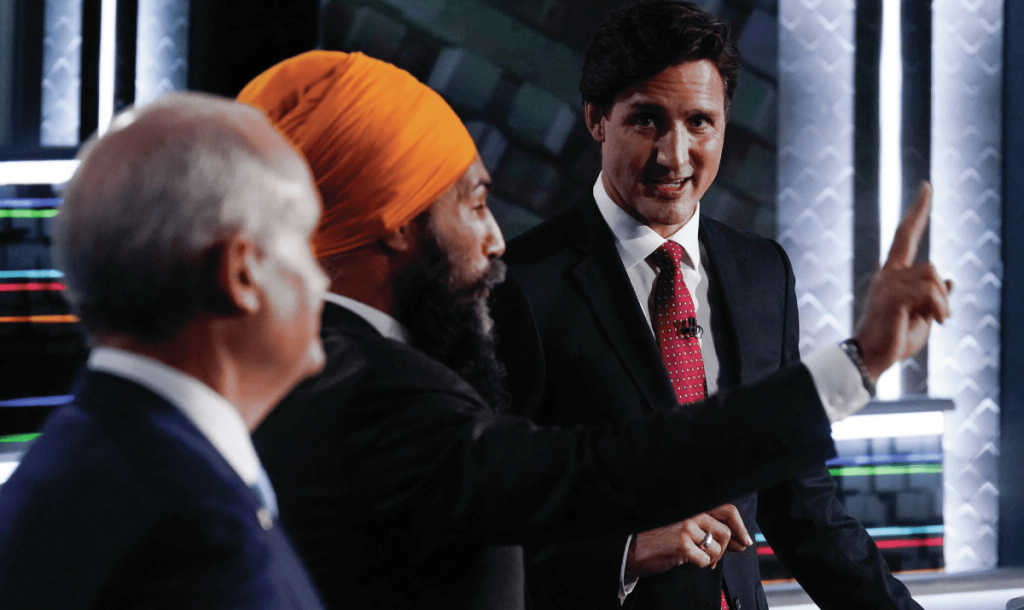Major Political Parties in Canada
As a country with a parliamentary system, Canada has a multi-party political landscape that allows for a diversity of political views and voices to be heard. In Canada, there are several political parties that represent a wide range of ideologies and values. This article will provide an overview of the major political parties in Canada, their history, ideology, and policies.

Liberal Party of Canada
The Liberal Party of Canada is one of the oldest and most influential political parties in Canada. It was founded in 1867 and has governed the country for most of the 20th century. The party is known for its progressive policies and commitment to social justice, economic growth, and environmental protection. Under the leadership of Prime Minister Justin Trudeau, the Liberal Party has taken a more progressive stance on issues such as immigration, climate change, and gender equality.
Conservative Party of Canada
The Conservative Party of Canada is the main rival to the Liberal Party. It was founded in 2003 as a merger between the Progressive Conservative Party and the Canadian Alliance. The party is known for its conservative values and policies, including fiscal responsibility, strong defense, and support for traditional social values. Under the leadership of Pierre Poilievre, the party has attempted to broaden its appeal to moderate voters while still maintaining its core conservative base.
Progressive Canadian Party
The Progressive Canadian Party was a federal political party that operated in Canada from March 29, 2004, until its dissolution on November 30, 2019. Although it was a minor political party, it had a significant impact on Canadian politics, particularly on the centre-right. The Progressive Canadian Party was centered around progressive conservative principles. The party advocated for a strong, united, and independent Canada, with a focus on fiscal responsibility, social justice, and environmental sustainability.
The party’s platform called for:
- Fiscal responsibility: The Progressive Canadian Party believed in balanced budgets and reducing government waste.
- Social justice: The party advocated for equal rights for all Canadians, regardless of race, gender, or sexual orientation.
- Environmental sustainability: The Party was committed to protecting Canada’s natural environment and promoting sustainable development.
The Canadian political landscape continues to evolve, with new parties and movements emerging to address the challenges of the day. Although the Progressive Canadian Party is no longer active, its legacy lives on and serves as a reminder of the importance of moderate, centrist voices in Canadian politics.
New Democratic Party
The New Democratic Party (NDP) is a social democratic party that advocates for greater government intervention in the economy and society. Just like the Progressive Canadian Party, it strives to promote social justice and equality. The party was founded in 1961 and has been a major player in Canadian politics ever since. The NDP’s policies include universal healthcare, affordable housing, and workers’ rights. Under the leadership of Jagmeet Singh, the party has sought to broaden its appeal to young people, racialized communities, and progressive voters.
Bloc Quebecois

The Bloc Quebecois is a Quebec-based political party that advocates for Quebec’s independence from Canada. The party was founded in 1991 and has been a significant force in Quebec politics ever since. The party’s policies focus on promoting Quebec’s distinct culture and identity, as well as protecting the province’s economic interests. Under the leadership of Yves-Francois Blanchet, the party has sought to increase its influence outside Quebec by positioning itself as a defender of Quebec’s interests on the national stage.
Green Party of Canada
The Green Party of Canada is a relatively new party that focuses on environmental issues and sustainable development. This progressive Canadian party was founded in 1983 and has steadily grown in popularity over the years. The party’s policies include reducing greenhouse gas emissions, transitioning to renewable energy sources, and promoting sustainable agriculture and forestry practices. Under the leadership of Elizabeth May, the party has sought to broaden its appeal to urban voters and young people.
People’s Party of Canada
The People’s Party of Canada is a right-wing populist party that was founded in 2018 by Maxime Bernier, a former Conservative MP. The party advocates for limited government, individual freedom, and reduced immigration. Its current leader is Maxime Bernier.
Minor Political Parties
In addition to the major political parties, there are several minor parties that operate in Canada. These parties have varying degrees of success in terms of electing members to Parliament. Some of the minor parties include the Communist Party of Canada and Christian Heritage Party.

In summary, the Canadian political sphere is characterized by a wide array of perspectives and ideologies advocated by multiple political parties. While the Liberal Party and the Conservative Party are the two main rivals, the NDP, Bloc Quebecois, and Green Party all play important roles in Canadian politics. By understanding the history, ideology, and policies of each party, Canadians can make informed decisions when it comes to voting in elections.
- The best live casinos gamesAt live casinos everyone can play with a live dealer instead of a computer, but what games are available? Live Roulette One of the most popular games at live casinos… Continue Reading
- Online poker strategyMore than just a game of fun, poker is a real game of strategy that you have to understand to stay one step ahead of your opponents. In fact, it… Continue Reading
- Why choose an online slot machine?Slot machines are the most popular games in online casinos today! Profitability Of course, when you decide to bet real money, it’s often because you want to be rewarded for… Continue Reading



